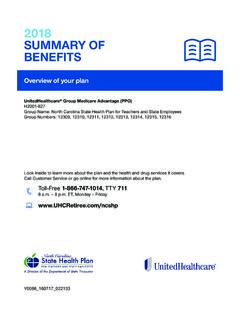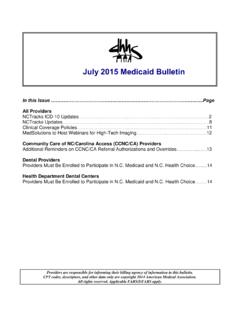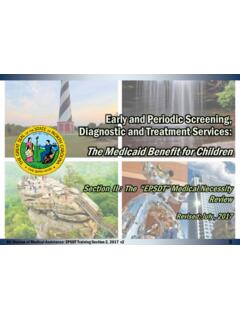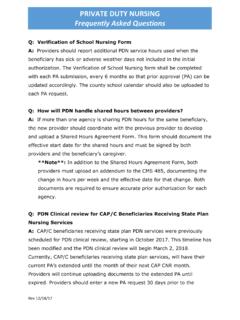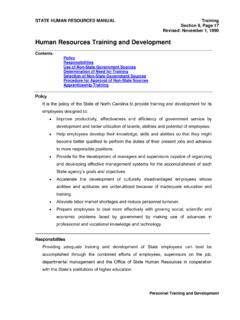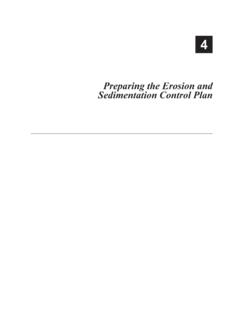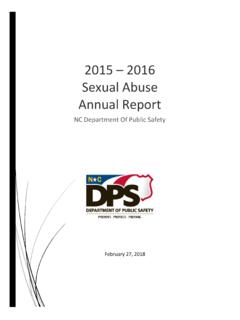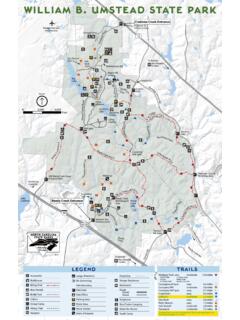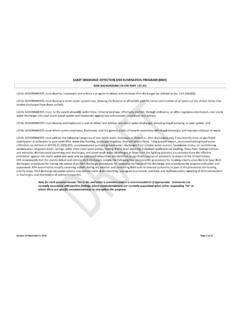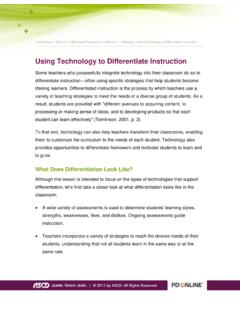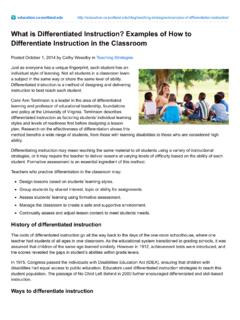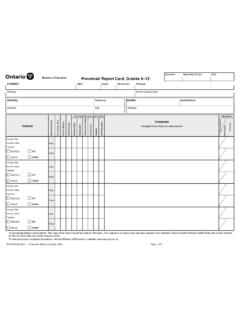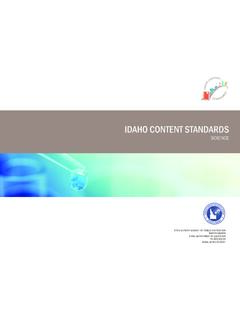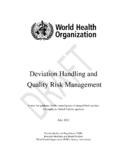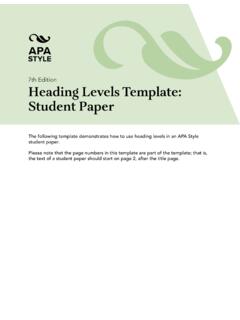Transcription of North Carolina Professional Teaching Standards - NC
1 North Carolina Professional Teaching Standards For every student in North Carolina , a knowledgeable, skilled compassionate star in every classroom.. As Approved by the State Board of Education May 3, 1998. Revised May 2, 2013. EDUCATOR EFFECTIVENESS DIVISION. North Carolina Professional Teaching Standards . The North Carolina State Board of Education charged the shared ownership of the vision and purpose of work of North Carolina Professional Teaching Standards Commission the school. Teachers are valued for the contributions to align the Core Standards for the Teaching Profession they make to their classroom and the school. (1997) with the newly adopted mission. To this end, Teachers make the content they teach engaging, Commission members, 16 practicing educators from across relevant, and meaningful to students' lives.
2 The state, considered what teachers need to know and be Teachers can no longer cover material; they, along able to do in 21st century schools. This document contains with their students, uncover solutions. They teach the aligned Standards adopted by the North Carolina State existing core content that is revised to include skills Board of Education in June 2007 and July 2011. like critical thinking, problem solving, and information Why are these Standards important to you? The North and communications technology (ICT) literacy. Carolina Professional Teaching Standards are the basis for In their classrooms, teachers facilitate instruction teacher preparation, teacher evaluation, and Professional encouraging all students to use 21st century skills development. Each of these will include the skills and so they discover how to learn, innovate, collaborate, knowledge needed for the 21st century Teaching and and communicate their ideas.
3 Learning. The document is provided in this format so that it T he 21st century content (global awareness, civic may be kept in a plan book to guide instruction as we move literacy, financial literacy, and health awareness) is forward in the 21st century. included in the core content areas. Subjects and related projects are integrated among A New Vision of Teaching disciplines and involve relationships with the home and community. The different demands on 21st century education dictate Teachers are reflective about their practice and new roles for teachers in their classrooms and schools. The include assessments that are authentic and following defines what teachers need to know and do to be structured and demonstrate student understanding. able to teach students in the 21st century: Teachers demonstrate the value of lifelong learning Leadership among the staff and with the administration and encourage their students to learn and grow.
4 Is shared in order to bring consensus and common, North Carolina Professional Teaching Standards . STANDARD 1 Teachers lead the Teaching profession. Teachers Demonstrate Leadership Teachers strive to improve the Teaching profession. They contribute to the establishment of positive working Teachers lead in their classrooms. conditions in their school. They actively participate in and advocate for decision-making structures in education and Teachers demonstrate leadership by taking responsibility government that take advantage of the expertise of teachers. for the progress of all students to ensure that they graduate Teachers promote Professional growth for all educators and from high school, are globally competitive for work and collaborate with their colleagues to improve the profession. postsecondary education, and are prepared for life in the 21st century.
5 Teachers communicate this vision to their Teachers should: students. Using a variety of data sources, they organize, S trive to improve the profession;. plan, and set goals that meet the needs of the individual Contribute to the establishment of positive student and the class. Teachers use various types of working conditions;. assessment data during the school year to evaluate student progress and to make adjustments to the Teaching Participate in decision-making structures; and and learning process. They establish a safe, orderly Promote Professional growth. environment, and create a culture that empowers students to collaborate and become lifelong learners. Teachers advocate for schools and students. Teachers advocate for positive change in policies and practices Teachers should: affecting student learning.
6 They participate in the implementa- Take responsibility for all students' learning; tion of initiatives to improve the education of students. Communicate vision to students; Teachers should: Use data to organize, plan, and set goals;. Advocate for positive change in policies and Use a variety of assessment data throughout the practices affecting student learning; and year to evaluate progress;. Participate in the implementation of initiatives to E stablish a safe and orderly environment; and improve education. Empower students. Teachers demonstrate high ethical Standards . Teachers demonstrate leadership in the school. Teachers demonstrate ethical principles including honesty, Teachers work collaboratively with school personnel to create integrity, fair treatment, and respect for others. Teachers a Professional learning community.
7 They analyze and use uphold the Code of Ethics for North Carolina Educators local, state, and national data to develop goals and strategies (effective June 1, 1997) and the Standards for Professional in the school improvement plan that enhances student Conduct adopted April 1, 1998. learning and teacher working conditions. Teachers provide Teachers should: input in determining the school budget and in the selection of Professional development that meets the needs of students Demonstrate ethical principles and their own Professional growth. They participate in the Uphold the Code of Ethics and Standards for the hiring process and collaborate with their colleagues to mentor Professional Conduct and support teachers to improve the effectiveness of their departments or grade levels. Teachers should: Work collaboratively with all school personnel to create a Professional learning community.
8 Analyze data;. Develop goals and strategies through the School Improvement Plan;. A ssist in determining school budget and Professional development;. Participate in hiring process; and Collaborate with colleagues to mentor and support teachers to improve effectiveness. North Carolina Professional Teaching Standards . STANDARD 2 appreciate the differences and value the contributions of each student in the learning environment by building Teachers Establish a Respectful positive, appropriate relationships. Environment for a Diverse Teachers should: Population of Students Maintain high expectations for all students; and Teachers provide an environment in which each child has a A ppreciate differences and value contributions by positive, nurturing relationship with caring adults. building positive, appropriate relationships.
9 Teachers encourage an environment that is inviting, Teachers adapt their Teaching for the benefit of students respectful, supportive, inclusive, and flexible. with special needs. Teachers should: Teachers collaborate with the range of support specialists Encourage an environment that is inviting, to help meet the special needs of all students. Through respectful, supportive, inclusive, and flexible. inclusion and other models of effective practice, teachers engage students to ensure that their needs are met. Teachers embrace diversity in the school community Teachers should: and in the world. Collaborate with specialists; and Teachers demonstrate their knowledge of the history of diverse cultures and their role in shaping global issues. Engage students and ensure they meet the needs of They actively select materials and develop lessons that their students through inclusion and other models of counteract stereotypes and incorporate histories and effective practice.
10 Contributions of all cultures. Teachers work collaboratively with the families and Teachers recognize the influence of race, ethnicity, gender, significant adults in the lives of their students. religion, and other aspects of culture on a student's Teachers recognize that educating children is a shared development and personality. responsibility involving the school, parents or guardians, Teachers strive to understand how a student's culture and and the community. Teachers improve communication background may influence his or her school performance. and collaboration between the school and the home and Teachers consider and incorporate different points of view community in order to promote trust and understanding in their instruction. and build partnerships with all segments of the school Teachers should: community.
